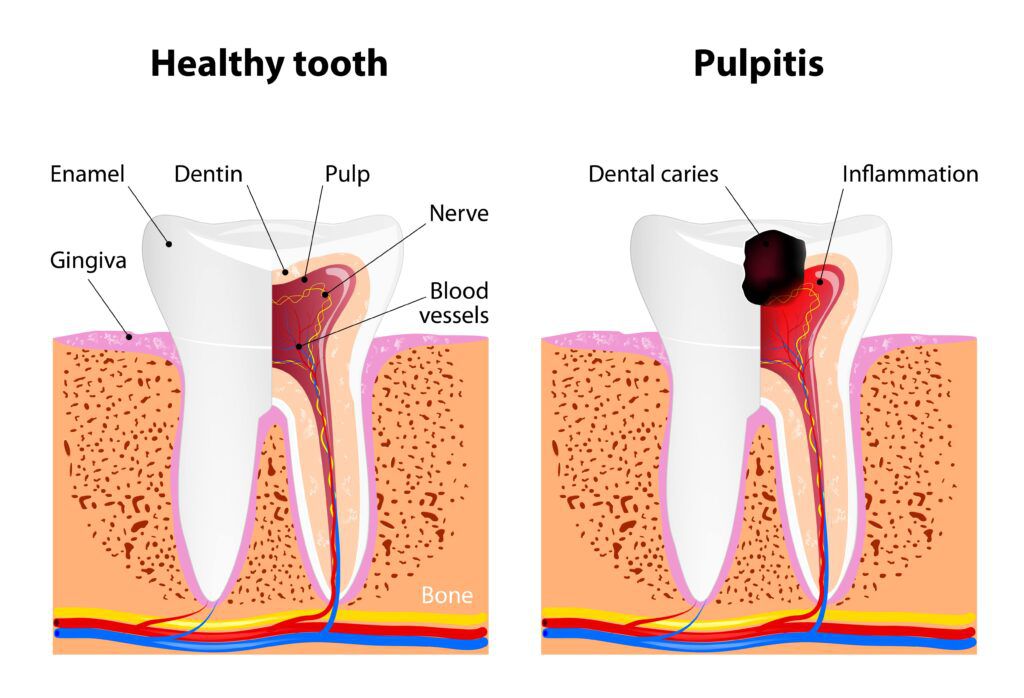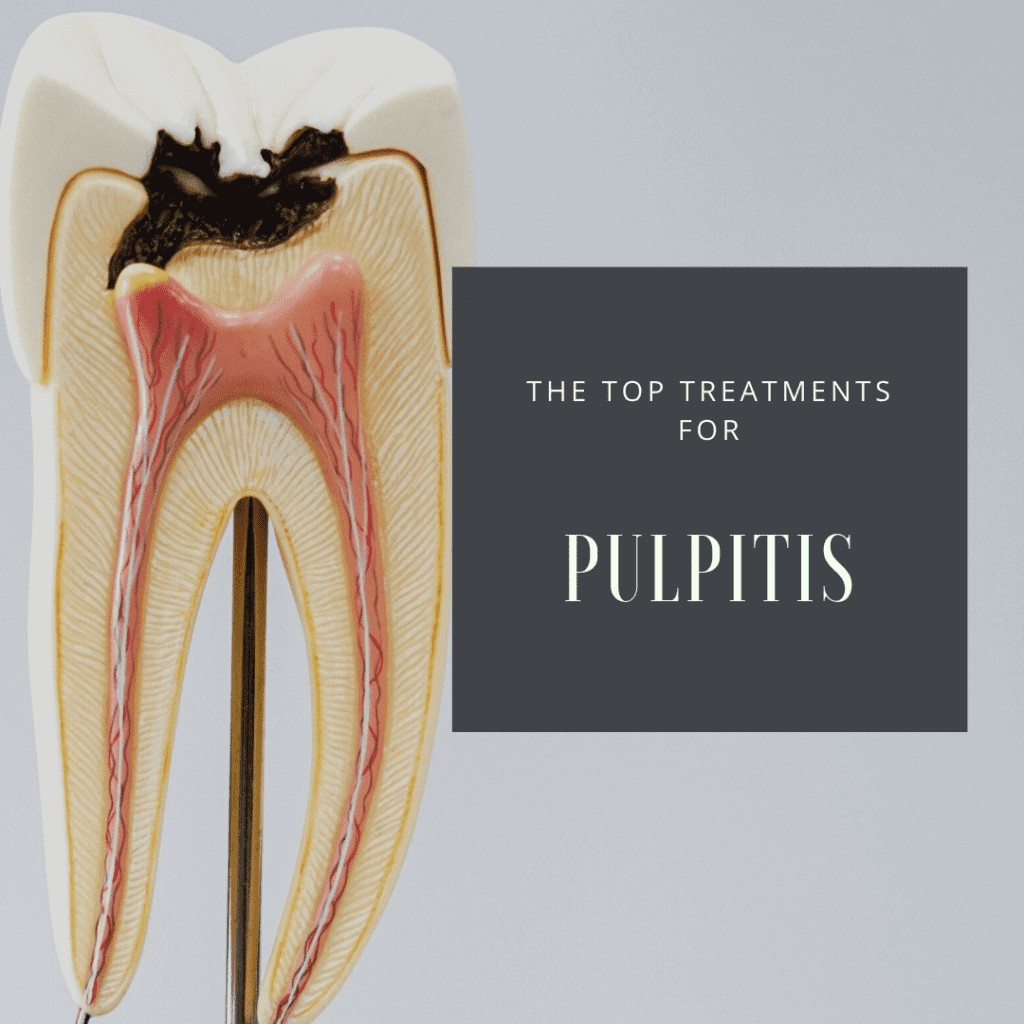If you are one of the many people who have been suffering from tooth pain or sensitivity, you may have been told that you have pulpitis. Pulpitis is a condition that affects the pulp of your teeth, and if left untreated, it can cause extensive damage. In this blog post, we will discuss the top treatments for pulpitis and how they work. We will also compare these treatments to help you decide which treatment may be best for you!
Pulpitis is a condition that affects the pulp of your teeth. The pulp is the soft tissue inside your teeth that contains blood vessels and nerves. Pulpitis occurs when the pulp becomes inflamed or infected. This can happen for a number of reasons, such as a deep cavity, a cracked tooth, or gum disease. Pulpitis can cause extensive damage to your teeth if it is left untreated, so it is important to seek treatment as soon as possible.

The two most common treatments for pulpitis are root canal therapy and dental implants. Root canal therapy is a procedure in which the dentist removes the infected pulp from the inside of your tooth. After the pulp is removed, the empty tooth is sealed to prevent further infection. In most cases, a dental crown is also placed over the affected tooth for support and protection.
The main benefit of a root canal is that it preserves the healthy portions of your teeth. However, root canal therapy also comes with a risk of failure. When a root canal fails, root canal retreatment or extraction may be needed.
Dental implants are another option for treating pulpitis. Dental implants are titanium posts that are placed into your jawbone to support artificial teeth. They are primarily used in cases where your dentist has opted to remove, or extract, the affected tooth. Once the infected tooth has been extracted, then dental implants are used as a replacement option.
The main benefit of having a dental implant placed is that an extraction guarantees the infection is completely removed. However, the extraction and implant procedure is more invasive than a simple root canal and takes longer to heal.
So, which treatment is right for you? The answer depends on the severity of your pulpitis and the health of your teeth. If you have a deep cavity or a cracked tooth but still have enough healthy tissue, root canal therapy may be the best option. However, if your dentist has determined that extraction is necessary due to severe decay or risk of root canal failure, then dental implants may be the best way to replace your missing tooth. The only way to know for sure is to consult with your dentist.
In Conclusion
In this blog post, we discussed the top treatments for pulpitis: root canal therapy and dental implants. We also compared these two treatments to help you decide which one may be best for you. If you are suffering from tooth pain or sensitivity, be sure to consult with your dentist to determine the best course of treatment for you! Thanks for reading!




